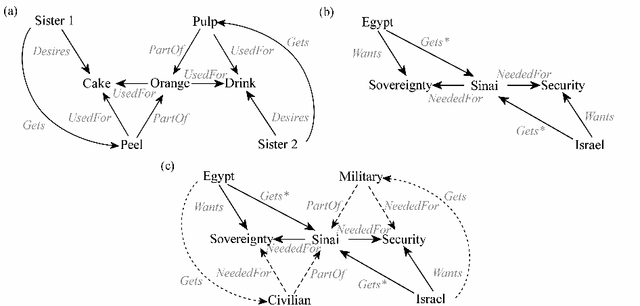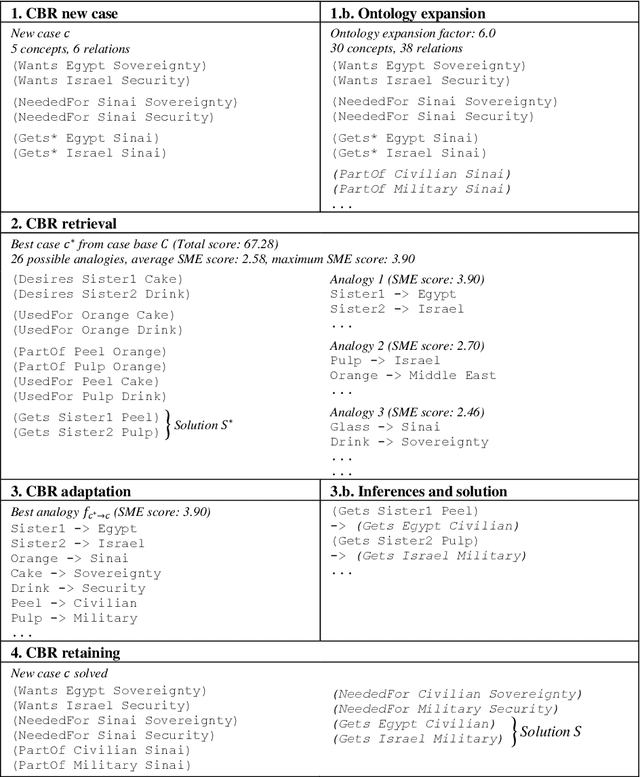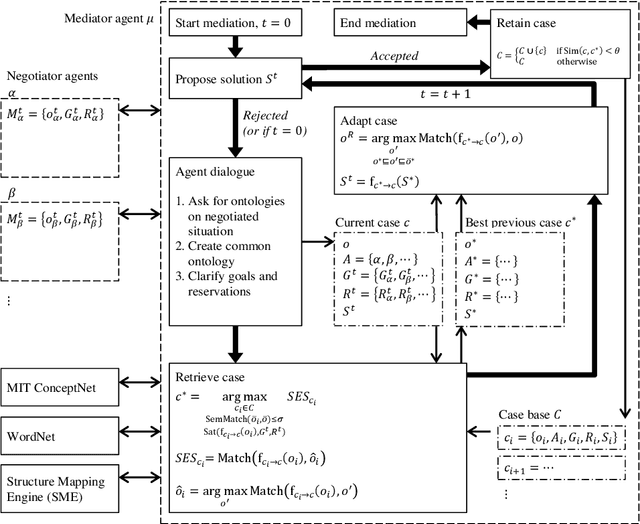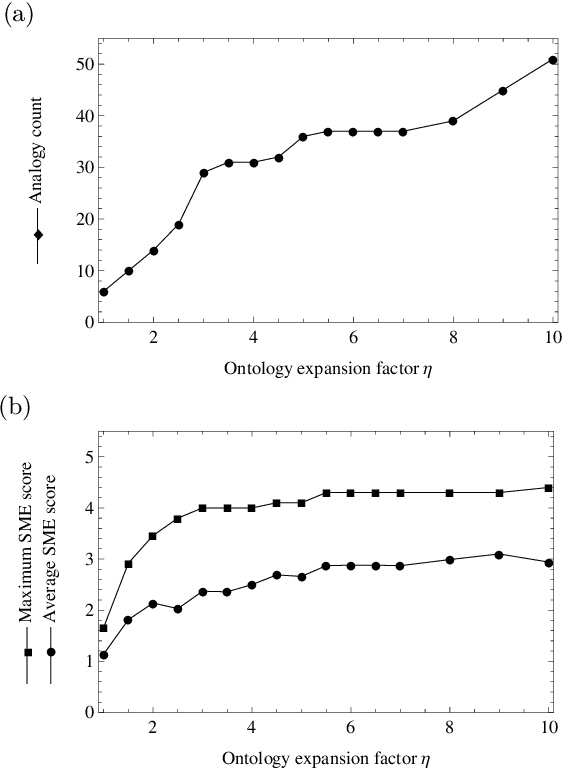Simeon Simoff
Dispute Resolution Using Argumentation-Based Mediation
Sep 15, 2014Abstract:Mediation is a process, in which both parties agree to resolve their dispute by negotiating over alternative solutions presented by a mediator. In order to construct such solutions, mediation brings more information and knowledge, and, if possible, resources to the negotiation table. The contribution of this paper is the automated mediation machinery which does that. It presents an argumentation-based mediation approach that extends the logic-based approach to argumentation-based negotiation involving BDI agents. The paper describes the mediation algorithm. For comparison it illustrates the method with a case study used in an earlier work. It demonstrates how the computational mediator can deal with realistic situations in which the negotiating agents would otherwise fail due to lack of knowledge and/or resources.
CBR with Commonsense Reasoning and Structure Mapping: An Application to Mediation
Oct 12, 2011



Abstract:Mediation is an important method in dispute resolution. We implement a case based reasoning approach to mediation integrating analogical and commonsense reasoning components that allow an artificial mediation agent to satisfy requirements expected from a human mediator, in particular: utilizing experience with cases in different domains; and structurally transforming the set of issues for a better solution. We utilize a case structure based on ontologies reflecting the perceptions of the parties in dispute. The analogical reasoning component, employing the Structure Mapping Theory from psychology, provides a flexibility to respond innovatively in unusual circumstances, in contrast with conventional approaches confined into specialized problem domains. We aim to build a mediation case base incorporating real world instances ranging from interpersonal or intergroup disputes to international conflicts.
* 15 pages, 3 figures; updated copyright notice
 Add to Chrome
Add to Chrome Add to Firefox
Add to Firefox Add to Edge
Add to Edge